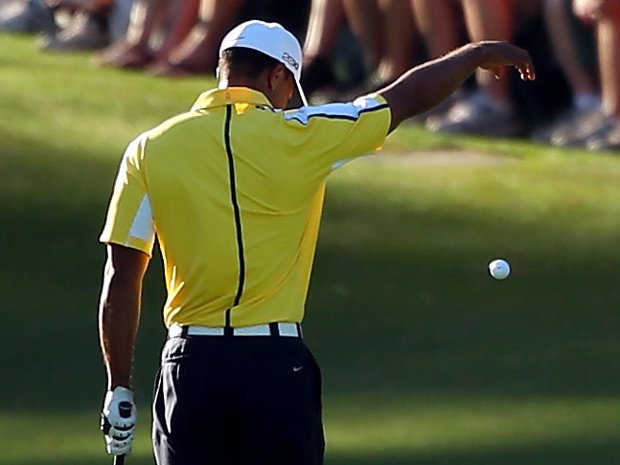In many activities, policing yourself is the lone method of enforcing the rules. It does not make much sense pay for a referee for a game of pickup basketball, does it? If someone breaks the rules, the one who would know about it the fastest would be the perpetrator, correct? Finally, those who are supposed to police the rules and do not do so for an edge are not really the kind of people you want to be competing against. It is hardly a fair playing field in that case.
No professional activity relies on policing yourself more than golf does. Even at one of the largest tournaments of the season, with a hundred cameras and trained rules officials covering every inch of the course, the players are still called upon to call rules violations on themselves.
Hence why what happened Friday is so odd. A drop in the wrong position. A scorecard signed with the wrong score. An interview and a rules call from a person nowhere near the event. None of this should have ever been more than a footnote. Then again, nothing Eldrick T. Woods ever does is a footnote it seems.
It has been a strange last few years for Woods. The cheating scandal and the explosion of his personal life that followed. His struggles on the course. The baffling public relations moves (proving that winning does NOT take care of everything, apparently). When his game returned this season, and Woods started winning on the course, it seemed like life was returning to normal for Tiger.
Then Friday occurred. A drop placed well behind the divot. Yet not a single rules official caught it. No one playing with Woods caught it. The higher-ups at the tournament were not even aware of what happened even after Woods admitted it in a post match interview until a viewer on television got in contact with the course. Because Woods signed a scorecard without the two-stroke penalty for the illegal drop, the rules state he should have been disqualified from the tournament.
Mind you, this is golf, a game with a labyrinth of a rules book, with some of the most inane and ridiculous stipulations (waste areas versus bunkers, or the idea of "ground under repair" and what constitutes that mess). However, players are called upon to be honorable with their conduct. Former professional golfer Nick Faldo was among many who called for Woods to withdraw if he was not disqualified.
Woods did not withdraw. On Saturday, he was given a two-stroke penalty retroactively, and allowed to continue. He would eventually finish fourth, four strokes off the lead from the winner Adam Scott. The question remains: should Woods have withdrawn for his mistake? The post match interview revealed he knew what that was an error, but it was not made to gain an advantage.
In all honesty, what Augusta National Golf Club did was correct. Woods got his penalty, and thus did not gain anything from the rules violation. The club enforced the rules of the game, though the fact that it took a viewer from home to get it done is disconcerting. Adam Scott got his victory moment, without the talking heads in sports media spending every second of Masters coverage talking about Woods being disqualified. Nothing of value was lost … or was it?
Honor and karma. The belief that doing the right thing is its own reward, and the belief that doing the right thing means fate will be on your side. The act of not withdrawing was logical and legal. Honorable?
I suppose that is up to each person to decide. When someone does not police themselves, they are not someone you want to be around, are they?
Add The Sports Daily to your Google News Feed!
